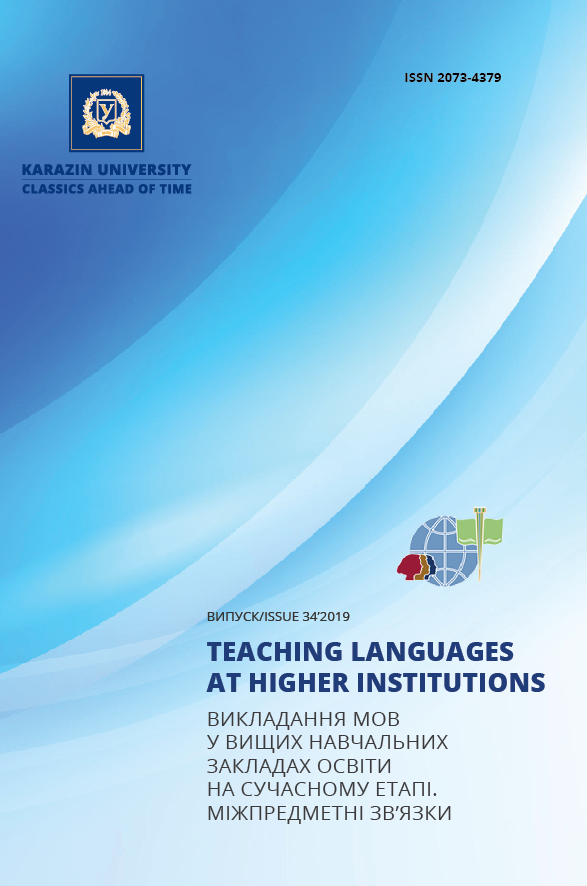The application of a game method in teaching chinese: a case of confucius institute at v.n. karazin kharkiv national university
Abstract
In teaching Chinese as a second language, the game method refers to the method in which the teacher uses the means of fun, flexibility and diversity to spark the enthusiasm of the students or to consolidate what they have learned. And the games can be used before the start of the class, in the middle of the class or before the end of the class. In addition, this approach can be adopted from in the primary schools to universities, from the Chinese learning beginners to the advanced Chinese learners.
With the increasing people studying Chinese abroad recent years, the method of traditional Chinese teaching approach has been challenged. Due to the different cultural backgrounds of students, the Chinese teachers might find that it is very difficult for foreign students to focus on the Chinese learning in the class, because they can not adapt themselves to that kind of exam-oriented teaching method Chinese teachers usually adopt and the cram-studying way many Chinese students used. However, as there are more and more young teachers devoted themselves to the Chinese teaching career, this method of “education through fun” has also attracted more and more attention from the TCSL (Teaching Chinese as a Second Language) teachers, those young teachers in particular, as they came to realize that “the aim of teaching the second language is no doubt to develop the communication skills of those learners”.
Therefore, more TCSL teachers have begun to transform from the traditional Chinese class model of “teacher-centered” to a brand new model of “student-centered”, and the “game method” plays a particularly important role in the latter. Based on the author’s experience, the author has illustrated eight games implemented in the class of HSK Level 2 in Confucius Institute at Kharkiv National University in Ukraine as example. The author is going to discuss the entire procure of implementing the games, including the name of the game, the advantages and disadvantages of the games and so on.
Apart from the mentioned above, the author is going to discuss the aspects teachers should pay attention to the process of the game in the class and the role teachers should play in the application of the game method from three dimensions.
Downloads
References
Chao, Chinming. (2008). Hanyu zuowei tierh yuyen chiaohsueh: linien yu moshih [Chinese as a second language teaching: Ideas and models]. Shihchieh hanyu chiaohsueh [World Chinese teaching], 01, pp. 93–107 [in Chinese].
Chiang, Lip'ing. (2008). Tuiwai hanyu chiaohsueh lun [Teaching of Chinese as a foreign language]. Beijing: Language and Culture University Press, p. 4 [in Chinese].
Li, Lin. (2017). Tuiwai hanyu k'ot'ang chiaohsueh chung te yuhsi chiaohsuehfa yenchiu-i hanko ch'uanlonantao lishui kaochung wei li [Research on game teaching method in teaching Chinese as a foreign language-taking the Lishui High School in Jeollanam-do, South Korea as an example]. Hsientai yuwen. Chiaohsueh yenchiu pan [Modern Language. Academic Comprehensive Edition], 03, pp. 14–16 [in Chinese].
Li, Ssulin. (2017). Tuiwai hanyu chiaohsueh te k'ot'ang yuhis chiaohsueh ts'e lueh. [Classroom game teaching strategies for teaching Chinese as a foreign language]. Wenhsueh Chiaoyu [Literary education], 06, p. 172 [in Chinese].
Lu, Pisung. (1996). Tuiwai hanyu chiaohsueh kailun. chiangi. Peiching [Introduction to teaching chinese as a foreign language. Lecture]. Beijing: State Education Commission Office for the Examination of Chinese as a Foreign Language Teacher, p. 45 [in Chinese].

